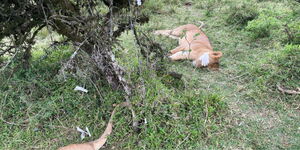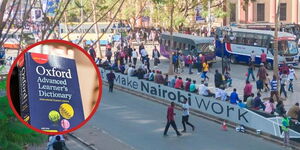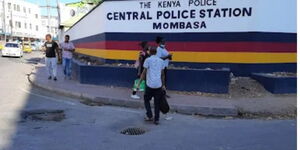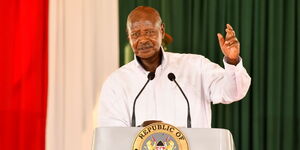Education Principal Secretary Belio Kipsang has revealed plans to introduce a new levy on some imported junk food items to fund the school feeding programme.
Appearing before the National Assembly Departmental Committee on Education on Tuesday, June 11, Kipsang revealed that the Ministry was in talks with the Kenya Revenue Authority (KRA) over the possibility of imposing a levy on imported junk foods.
He detailed that the plan was to ringfence the levy to ensure that all the money collected goes to the feeding programme.
The PS explained that the adoption of the levy was one of the strategies aimed at funding the programme that was undergoing financial constraints.
"He revealed that there was a plan to push that 2.5 per cent of the country’s revenue be dedicated to the program.
"He further disclosed that the ministry was in negotiation with the Kenya Revenue Authority to impose a levy on imported junk food to be ringfenced to cover the national feeding program," read the statement in part by Parliament.
However, more details such as the levy rate and the possible start date of the levy were not revealed.
Some of the notable junk foods that are consumed by Kenyans include cakes, biscuits, chocolate and sweets, processed meat such as bacon and sugary drinks among others.
Ripple Effect: Therefore, with the imposition of the levy, the prices of food items will shoot up.
Notably, the school feeding programme is one of the areas that witnessed budget cuts in the upcoming budget.
In the 2024/2025 programme, Ksh3 billion has been allocated to the programme in comparison with Ksh5.4 billion in the current budget.
Therefore, with a plan to increase the funding through the levy, many students are expected to benefit.
"PS Kipsang however assured Members that in spite of the current challenges, as a member of the Global School Meals Coalition, Kenya was committed to achieving universal school feeding by 2030, by increasing the current coverage from 2.6 million to 10 million learners.
"According to the PS, the program which started in 1979 after the country was hit by a severe drought that affected 80 per cent of the population and resulted in school dropouts, had expanded gradually to cover a total of 2.6 million learners in 8,185 schools across the country as of 2024," the committee reported.












